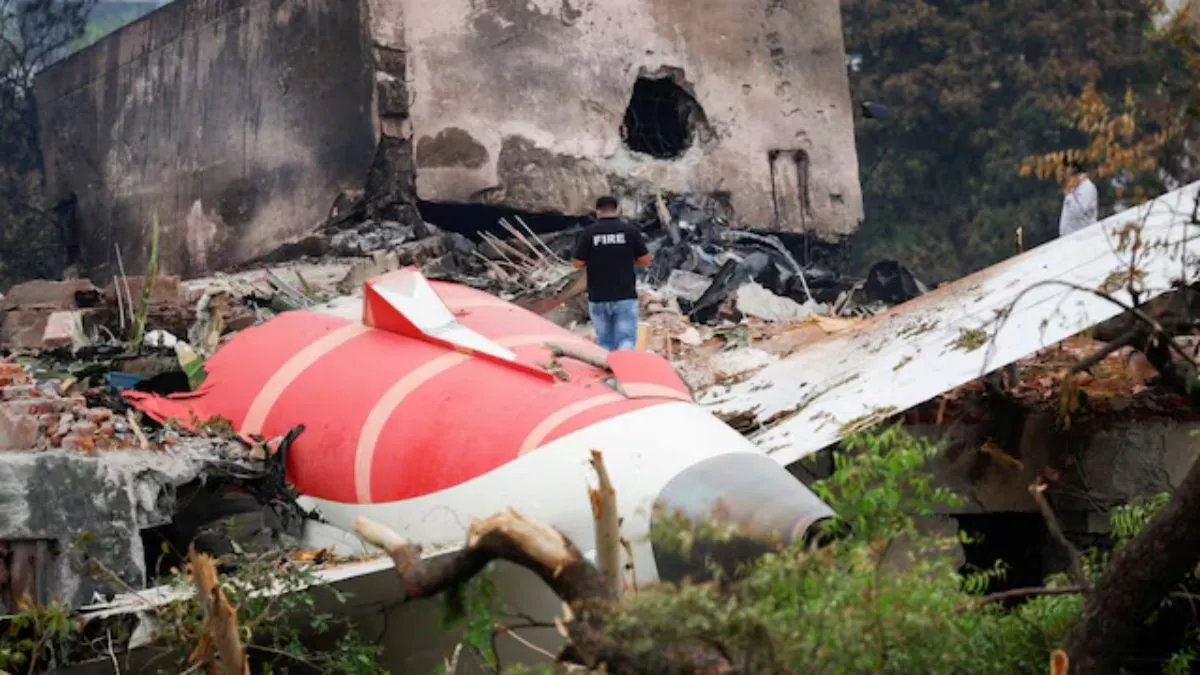- By Priyanka Koul
- Thu, 18 Sep 2025 03:28 PM (IST)
- Source:JND
Air India Plane Crash: Following the tragic Air India plane crash in Ahmedabad on June 12, which claimed over 200 lives, the families of four passengers killed in the disaster have filed a lawsuit against Boeing and Honeywell. They allege negligence and a defective fuel cutoff switch caused the crash of Air India Flight 171, which killed 260 people.
Flight 171 went down shortly after departing Ahmedabad for London on June 12.
In a complaint filed Tuesday in Delaware Superior Court, the plaintiffs stated that the locking mechanism for the fuel cutoff switch on the Boeing 787-8 Dreamliner could be accidentally disengaged or missing, leading to a loss of fuel supply and the thrust needed for takeoff.
The plaintiffs claim that Boeing, which installed the switch, and Honeywell, which manufactured it, were aware of this risk, particularly after the US Federal Aviation Administration issued a 2018 warning about disengaged locking mechanisms on several Boeing aircraft.
ALSO READ: Air India Crash: US Aviation Body Rules Out Possible Mechanical Failure In Boeing Fuel Control Unit
According to Reuters, the complaint stated, "Boeing effectively guaranteed that normal cockpit activity could result in inadvertent fuel cutoff." It added, "What did Honeywell and Boeing do to prevent the inevitable catastrophe? Nothing."
Boeing, headquartered in Arlington, Virginia, declined to comment on Wednesday. Honeywell, based in Charlotte, North Carolina, did not immediately respond to requests for comment. Both companies are incorporated in Delaware.
This lawsuit appears to be the first in the United States related to the crash.
It seeks unspecified damages for the deaths of Kantaben Dhirubhai Paghadal, Naavya Chirag Paghadal, Kuberbhai Patel, and Babiben Patel, among the 229 passengers killed. Twelve crew members and 19 people on the ground also died, with only one passenger surviving. The plaintiffs are citizens of India or the United Kingdom, and live in one of those countries. Indian, UK and American investigators have not conclusively determined the crash's cause.
A preliminary report by India’s Aircraft Accident Investigation Bureau in July highlighted confusion in the cockpit before the crash.
In July, Bryan Bedford, the US FAA administrator, expressed a "high level of confidence" that neither a mechanical issue nor accidental movement of fuel control components caused the crash.
Boeing has faced over $20 billion in legal and other costs from two fatal 737 MAX crashes in 2018 and 2019, which led to the plane’s grounding for 20 months.
